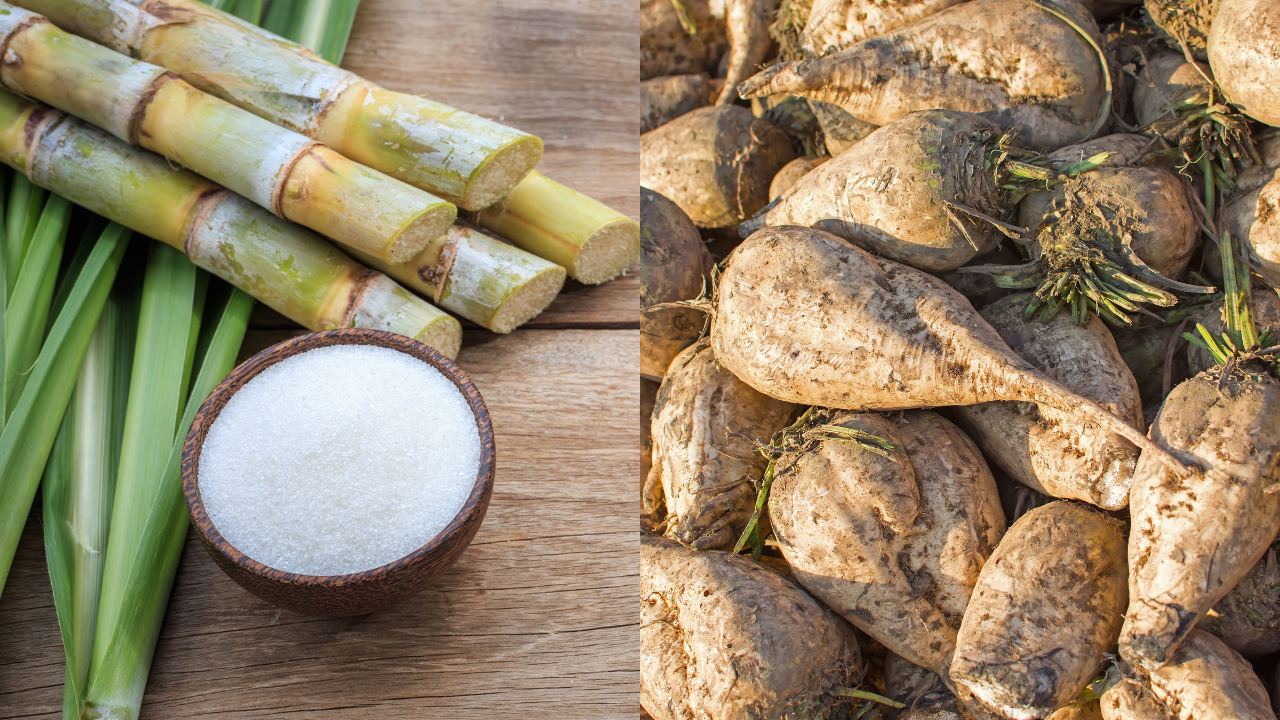The debate on beet sugar vs cane sugar often is about processing methods and composition.
The debate on beet sugar vs cane sugar often is about processing methods and composition.
Blog Article
Checking Out the Differences in Uses and Advantages In Between Beet Sugar Vs Cane Sugar
In the culinary globe, the option between beet sugar and cane sugar is not just regarding sweetness but entails a nuanced consideration of taste, application, and impact. While both sugars originate from various plants, each undergoes unique manufacturing processes that discreetly influence their features and suitability for different recipes. As chefs and customers progressively focus on both the environmental and taste profiles of their components, comprehending these differences comes to be vital. This expedition provides understanding into just how each sugar type can best boost cooking developments.
Beginnings and Manufacturing Processes of Beet and Cane Sugar

Walking cane sugar, on the various other hand, comes from the sugarcane plant, an exotic lawn native to Southeast Asia however now cultivated in exotic areas worldwide - beet sugar vs cane sugar. The production of cane sugar starts with the harvesting of cane stalks, which are squashed to launch the juice.

Nutritional Material and Wellness Considerations

When comparing the dietary material of beet sugar and cane sugar, it becomes noticeable that both types basically provide the exact same calorie values, with around 16 calories per teaspoon and no considerable nutrient variety. Both sugars, when consumed in excess, can contribute to raised blood sugar levels, a danger variable for diabetes and other metabolic problems. From a health and wellness viewpoint, moderating intake of any type of kind of sugar, whether from beet or cane, is advisable to avoid these prospective adverse effects on well-being.
Taste Accounts and Culinary Applications
Despite their comparable chemical frameworks, beet sugar and cane sugar vary subtly in taste, which can influence their usage in different culinary contexts. Walking cane sugar often lugs a hint of molasses, also in its refined kind, providing a cozy, caramel-like undertone site here that boosts baked products, coffee, and chocolate-based recipes. On the other hand, beet sugar is characterized by its extremely refined, neutral taste, making it a versatile sweetener that does not modify the flavor accounts of meals.
Ecological Impact and Sustainability
While both beet and cane sugars are acquired from plants, their ecological impacts differ considerably due to the unique techniques of growing and processing required for each. Sugar beet cultivation commonly entails considerable automation, which can raise fossil gas intake and carbon emissions.
Moreover, the processing of sugarcane typically creates a considerable amount of waste, including bagasse, which, although usable as biofuel, frequently adds to air contamination if melted inefficiently. Sugar beet handling uses more of the raw materials, leading to less waste. Both industries face obstacles in lowering their ecological impacts, however ongoing developments in agricultural practices and waste management are intending to improve sustainability.
Economic Variables Affecting the Sugar Industry
The financial dynamics of the sugar market are considerably affected by worldwide market demands and profession policies. Aspects such as tariffs, visit this web-site aids, and international trade arrangements play vital roles in forming the affordable landscape. In regions where sugarcane or sugar beet manufacturing is subsidized, producers might have an economic benefit that allows them to supply reduced costs on the international market. This can produce differences in earnings and market access for producers in countries continue reading this without such subsidies.
Additionally, fluctuations in global demand for sugar, influenced by dietary fads and industrial use in food products, directly effect costs and manufacturing degrees. beet sugar vs cane sugar. Climate condition additionally play a crucial duty, as they can significantly impact crop yields and, consequently, the supply chain. This variability introduces a level of financial unpredictability that can lead to investment volatility in sugar production industries, affecting choices from growing to market strategy
Verdict
In final thought, both beet and cane sugar have distinct qualities that match different cooking requirements. While cane sugar conveys a rich taste suitable for boosting baked products, beet sugar's nonpartisanship is best for lighter dishes.
Report this page